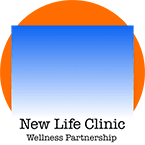Plants have been used extensively to make medications for thousands of years. The fact is, we aren’t against the judicious use of medication under the right circumstances. It stands to reason that we must also ponder the hazards of medications when they fall into the wrong hands, either on accident or through theft, and take measures to avoid this happening.
So, we offer some precautionary measures which may prove helpful:
Buy a cap lock for the bottle
Childproof caps are difficult for anyone to open except for children, who invariably figure out how to lock a childproof cap way faster than an adult. Childproof caps are also difficult for people who have arthritis or other hand weaknesses, such as carpal tunnel syndrome. In response, many people fail to close the bottle properly, making the childproof cap useless. A better solution is a locking cap for the bottle, available at Amazon.
Don’t combine pills
Combining pills in one container may seem convenient, but even a small mix-up can have unintended and sometimes very unpleasant consequences. Keep medications in the original bottles until they’re finished.
Superior disposal
First, remove and destroy the label from the bottle when you’re finished with medication. Addicts have excellent hunting skills and it’s better if there is no trace in the trash of the type of prescription medications which might be renewed and in your home.
Take back programs are available annually or semi-annually, but some communities have locations which offer a year-round drop off for unused medication. You can find those by entering your zip code here.
Flushing old medications down the toilet used to be the standard, but residuals of these have been found in lakes, rivers, and even drinking water. The FDA recommends mixing unwanted meds with a noxious substance such as used cat litter and sealed in a plastic baggie before throwing it away.
Not in the medicine chest
Not only is the medicine chest the first place a thief will look for medications, but it’s also a warm, damp environment ill-suited for most medicine, which usually calls for a cool, dry place. Storing it somewhere out of sight and out of the reach of children, including teens, is a must. Consider a lockbox or a small safe for pills, and a completely separate area from food for those meds which need to be refrigerated.
Alternative solutions to pills
When the burden of taking medications becomes undesirable, many people turn to alternative choices which have the same or better results without medications, or great results with fewer medications. There are many alternatives available, but knowing all of these options isn’t always possible without a physician consultation, which can determine what other possible treatments might be available to the patient for conditions such as stress management, smoking cessation, and weight loss. There are many choices for those with both constant and chronic conditions, short-term or intermittent, and long-term wellness issues.
Talk to your doctor or wellness team if you have an interest in alternatives to taking pills. Some non-pharmaceutical results are more effective than their pill-counterparts because they address the causes, rather than masking the effects.
If you need a wellness partner to achieve your health goals call New Life Wellness Clinic at (480) 510-5344.





